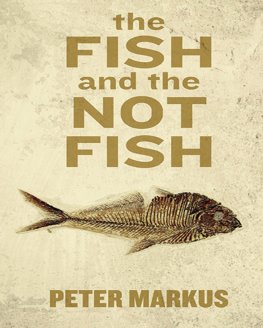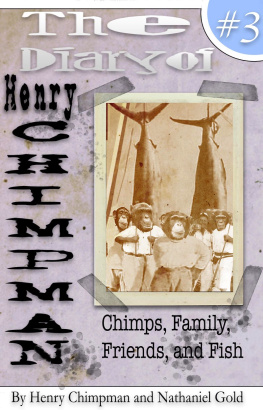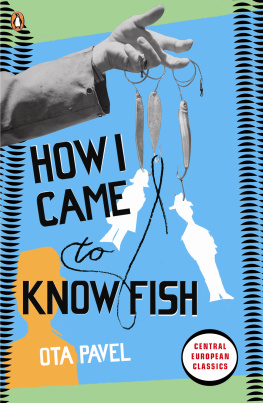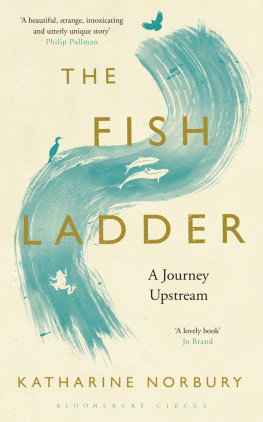T his beginning part is for my father. This is your story. I wasnt there but I put it together from what the family remembered. And from what I dreamed. You may think its not my place to tell. Maybe so. But aside from your blood thats in me, this storys just about all I have of you. I guess that makes it mine, too.
The year was 1959, the time a Thursday morning, the second Thursday of June. This was in Clevelandthe kind of big midwestern city that made for a good place to raise kids and dreams. The economy was thriving then thanks to the motor companies, the steel mills, tool-and-dye factories, and the other industries springing up across the landscape every which way but north, where the great, ominous expanse of Lake Erie is all that the eye can see.
Cleveland in the 1950s was a proud place, a righteous place. A brand-name cityFord, Republic Steel, White Motors, Fisher Body, Strohs beer. A family city. It was work and church. It was a ball town. Football and baseball. Especially baseball. It was music, too. Gospel, doowop, jazz, blues, and the symphony. It was the birthplace of Superman.
Cleveland was already a big city, on its way, at one point, to reaching number five on the list of largest cities in America. But to men like Horace Elkins, Sr., a hardworking father of eight, it still had that small-town, friendly feeling. True, he liked to keep himself and his family close to home, safe in the bounds of the Glenville area. This was the working-class, predominantly black neighborhood near the lake, nestled comfortably between the main arteries of St. Clair and Superior, which were linked by 105th Street, forming an I shape. Up and down 105, as it was calledat the grocers, the five-and-dimes, thrift stores, barbershops, mom-and-pop record shops, clothing, shoe, and liquor stores, and in the neon-lit loungesresidents and merchants were on a first-name basis. On the street, strangers were scarce.
Horace knew and trusted his neighbors; they knew and trusted him. More than trusted, they looked up to him. A man felt good to walk proud among his own. Nothing made Horace more proud than his family. Thats why he was forever telling his sons, Get yourself a rib. Find a woman, settle down, raise children, be a man.
Friendly and small-town it could be, but Cleveland living was hardly easy. Like the weather and the work, the temperament was harsh. And Horace also understood there was an air of danger in the daily humsomething seductive but lethal. He wondered sometimes if that sense came from the Choctaw in him, the way he always felt on guard. When he could, Horace liked to shake those superstitions. They represented the old ways, the primitive beliefs brought up from Arkansas, where he was raised, and the slave ways that went back to the Elkins, West Virginia, plantation where the slavemaster Elkins had passed his surname to Horaces stepfather, who insisted Horace change his name from Barnett to Elkins. They were ways not of living but only surviving that had migrated north with his people and stayed with them, even after they left behind the plantations and reservations.
Horace fought the old ways that lurked inside him because he wanted more from life than a subsistence diet of fear and faith. So he fed himself an education, in night classes and on his own, studying the works of Shakespeare and Edgar Allan Poe and the philosophers from throughout the ages. Through philosophy, literature, science, music, and art, Horace Elkins became a learned man, a free man, a doctor of medicine, in fact, and, in spite of the modest apartment on Parkwood Avenue in which he and his family lived, a kind of noble man.
Knowledge, to him, was power and redemption. Knowledge, that is, and the Catholic Church. The Elkinses were strict Catholics. This, too, for Horace, was a further rejection of the old ways. But even so, he couldnt entirely rid himself of ancient instinct. Sometimes, those uneasy feelings had to be heeded.
Rising at 4:30 A.M . that Thursday, as he did every day in order to catch the bus on time that would carry him to the first of his two jobs, Horace woke to the shattering blast of a gunshot. He sat up, waiting for the aftermath. But nothing. A dream, thats all, he thought. Too vague to mean anything.
Horace washed and dressed quickly and went into the kitchen, where Emma had already prepared his breakfast and was setting it out for him on the kitchen table. He took his seat, bowed his head in silent prayer, and then began to eat.
Emma went back to the stove and stood watching her husband, waiting to see if he needed anything. For a moment, she was young againbefore nine babiesback in Forest City, Arkansas, looking for the first time at Horace, the light-skinned young man with his Choctaw warrior nose, who bowed as they were introduced, saying, Hello, Miss Emma. Like him, she was a blend of red and black, Choctaw and African, whose lineage could be traced to the slave plantations of Alabamaand she felt she belonged with him.
She was thin then, a little slip of a girl, but strong, Horace saw; and she was stronger than he could imagine. Over the years, as the lines of her body widened and curved, her position of authority was recognized not only in the family but within the community. Everyone around had heard stories about Emma bringing home other peoples hungry children and feeding them right along with her own nine kids.
Emma was strong, and her word was the law. Back in the days when Horace came home every night complaining about his job at the hospital laundry where his white boss cruelly mistreated him, she lifted him up each time, reminding her husband, But its a good job, Horace. Look at what we tryin to build for the family. You stay with it, Horace. Just hang in there. We almost where we need to be.
Hed listen to his wife because when she felt something, she felt it strong, and Horace would leave the next day, girding himself for more abuse. Then one afternoon, hours before his shift was normally over, he came walking up Parkwood, lunch can in hand, whistling. Neighbors out on their stoops and on the sidewalk were surprised to see Mr. Elkins home so early on a workday. They were even more surprised when Mrs. Elkins appeared in the open window of their apartment as he called to her, You know that good job you love so much at the hospital? You might want to go apply for it. They just got an opening.
The family loved to tell that storyespecially the boys. The two youngest of the four sons, Spinoza (Horace named him after the philosopher) and Raymond, thought it was funny. But Horace, Jr., the oldest boyalready in his mid-twenties yet still living at homefelt differently. To him, there was nothing amusing about a black man having to subject himself to oppression in any form. Now, Eddie, the second oldest, felt that story and what it said about his father gave him justification to walk away from all kinds of situations he couldnt tolerate. Horace, Sr., was none too happy about that.
Emma took Horaces plate back to the stove to fill it once again. He thanked her with a nod of his head, apparently hungry though lost in his own thoughts. Emma went back to the counter to finish packing lunches, thinking to herself of the day when Eddie was eighteen, not long after enlisting in the armed services, that Horace found his son had shown up unannounced on his doorstep.










